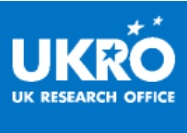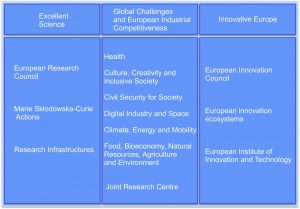 On Wednesday, 24 February 2021, BU’s Research, Support & Development Office will be hosting our very first, pilot Virtual STEAMlab (Science/Tech/Engineering/Arts/Maths lab) event under the aegis of the strategic investment area (SIA) of Animation, Simulation & Visualisation (ASV). It will also be the first of a series of 2-hour long virtual ASV STEAMlabs to be held in the course of 2021.
On Wednesday, 24 February 2021, BU’s Research, Support & Development Office will be hosting our very first, pilot Virtual STEAMlab (Science/Tech/Engineering/Arts/Maths lab) event under the aegis of the strategic investment area (SIA) of Animation, Simulation & Visualisation (ASV). It will also be the first of a series of 2-hour long virtual ASV STEAMlabs to be held in the course of 2021.
This first STEAMlab will introduce and address four core priority areas for the strategic development of ASV cross-faculty, multi-disciplinary collaborations across BU in conjunction with external partners. These 4 areas are:
Virtual Production
Digital Health
Environment in Crisis
Virtual Heritage
This first STEAMlab will focus on these ASV themes in break-out rooms to target specific funding opportunities.
The ideas generated at this event may also be used to help select colleagues for Scramble events at short notice.
Booking onto this event
To take part in this exciting opportunity, all participants should complete the ASV Virtual STEAMLab Application Form V2 and return this to Nicolette Barsdorf-Liebchen at nbliebchen@bournemouth.ac.uk by Friday, 5 February 2021.
By applying, you agree to attend for the full duration of the event on 24 February 2021, 1 – 3 pm. Places are strictly limited and you will be contacted to confirm your “virtual space” by 12 February 2021.
If you have any queries prior to submitting your application, please contact Nicolette Barsdorf-Liebchen.
The Brief
We’re seeking to come up with highly innovative and urgently required research which is ambitious in scope and will require a high level of expertise, commitment and funding. The research must address challenges in the above-mentioned areas, and seek to deploy BU’s considerable ASV expertise and assets.
In short, we anticipate the development of innovative, ground-breaking and ambitious projects which have the capacity to attract significant, high value funding from the public and private sectors.
Who should attend?
We welcome those who wish to contribute to having a positive impact through addressing these challenges, but in particular, we are specifically targeting the following:
- Those academics whose research aligns with one or more of these core areas, or whose research would benefit from the multidisciplinary, collaborative engagement supported by the ASV SIA;
- Who has experience of involvement in medium to large research projects, and finally;
- Who either has the capacity to lead as PI on ideas arising from the STEAMlab in a working group towards development of a substantial grant application of close to or above £1 million, or has the ambition, research track record and commitment to be involved in the same.
We will also be inviting relevant external attendees, such as digital technology companies, to contribute on the day.
Some Answers to your FAQs:
Do I need to do anything in advance?
No, you do not. During the STEAMLab, you’ll be guided through a process which results in the development of research ideas. The process facilitates creativity, potentially leading to grand, innovative and interdisciplinary research ideas. These ideas will be explored with other attendees, and further developed based on the feedback received.
What is the immediate objective?
The objective by the end of the STEAMlab is to have scoped some leading and grand ideas around which a working group or cluster can be formed to take forward towards the development of a large grant application.
What do I need to do afterwards?
Your project idea may be “oven-ready”, but it is more likely than not that, given the level of pioneering innovation sought, you/your group’s project idea/s will require some time to crystallise fully, and for the optimum partners to be found for the bidding consortium, and bringing to fruition a fully-fledged grant application. To this end, it is envisaged that you and your potential collaborators will be committed to meeting on a regular basis, with a firm timetable. Substantial administrative support will be available from both RDS as a whole and the ASV Research Facilitator, Dr Nicolette Barsdorf-Liebchen, to advance your project development and manage working groups.
What if my topic area is very specialised, within fields such as medical diagnostics or environmental science?
Your contribution will be very welcome! One of the main benefits of a STEAMlab event is to bring together individuals with a range of backgrounds and specialisms who are able to see things just that bit differently to one another.








 On Wednesday, 12 May 2021 from 11.30 to 1pm, RDS will be hosting Virtual AT STEAMlab (Science/Tech/Engineering/Arts/Maths lab) event under the strategic investment area (SIA) of Assistive Technology (AT). It will be the second of a series of up to 2-hour long virtual STEAMlabs to be held in the course of 2021.
On Wednesday, 12 May 2021 from 11.30 to 1pm, RDS will be hosting Virtual AT STEAMlab (Science/Tech/Engineering/Arts/Maths lab) event under the strategic investment area (SIA) of Assistive Technology (AT). It will be the second of a series of up to 2-hour long virtual STEAMlabs to be held in the course of 2021. We’re seeking to come up with highly innovative and urgently required research which is ambitious in scope and will require a high level of expertise, commitment and funding. The research must address challenges in the AT field.
We’re seeking to come up with highly innovative and urgently required research which is ambitious in scope and will require a high level of expertise, commitment and funding. The research must address challenges in the AT field. Your project idea may be “oven-ready”, but it is more likely than not that, given the level of pioneering innovation sought, you/your group’s project idea/s will require some time to crystallise fully, and for the optimum partners to be found for the building a winning consortium, and bringing to fruition a fully-fledged grant application. To this end, it is envisaged that you and your potential collaborators will be committed to meeting on a regular basis, with a firm timetable.
Your project idea may be “oven-ready”, but it is more likely than not that, given the level of pioneering innovation sought, you/your group’s project idea/s will require some time to crystallise fully, and for the optimum partners to be found for the building a winning consortium, and bringing to fruition a fully-fledged grant application. To this end, it is envisaged that you and your potential collaborators will be committed to meeting on a regular basis, with a firm timetable.
 On Wednesday, 24 February 2021, BU’s Research, Support & Development Office will be hosting our very first, pilot Virtual STEAMlab (Science/Tech/Engineering/Arts/Maths lab) event under the aegis of the strategic investment area (SIA) of Animation, Simulation & Visualisation (ASV). It will also be the first of a series of 2-hour long virtual ASV STEAMlabs to be held in the course of 2021.
On Wednesday, 24 February 2021, BU’s Research, Support & Development Office will be hosting our very first, pilot Virtual STEAMlab (Science/Tech/Engineering/Arts/Maths lab) event under the aegis of the strategic investment area (SIA) of Animation, Simulation & Visualisation (ASV). It will also be the first of a series of 2-hour long virtual ASV STEAMlabs to be held in the course of 2021.












 Upcoming opportunities for PGRs – collaborate externally
Upcoming opportunities for PGRs – collaborate externally BU involved in new MRF dissemination grant
BU involved in new MRF dissemination grant New COVID-19 publication
New COVID-19 publication Conversation article: London Marathon – how visually impaired people run
Conversation article: London Marathon – how visually impaired people run MSCA Postdoctoral Fellowships 2024
MSCA Postdoctoral Fellowships 2024 Horizon Europe News – December 2023
Horizon Europe News – December 2023